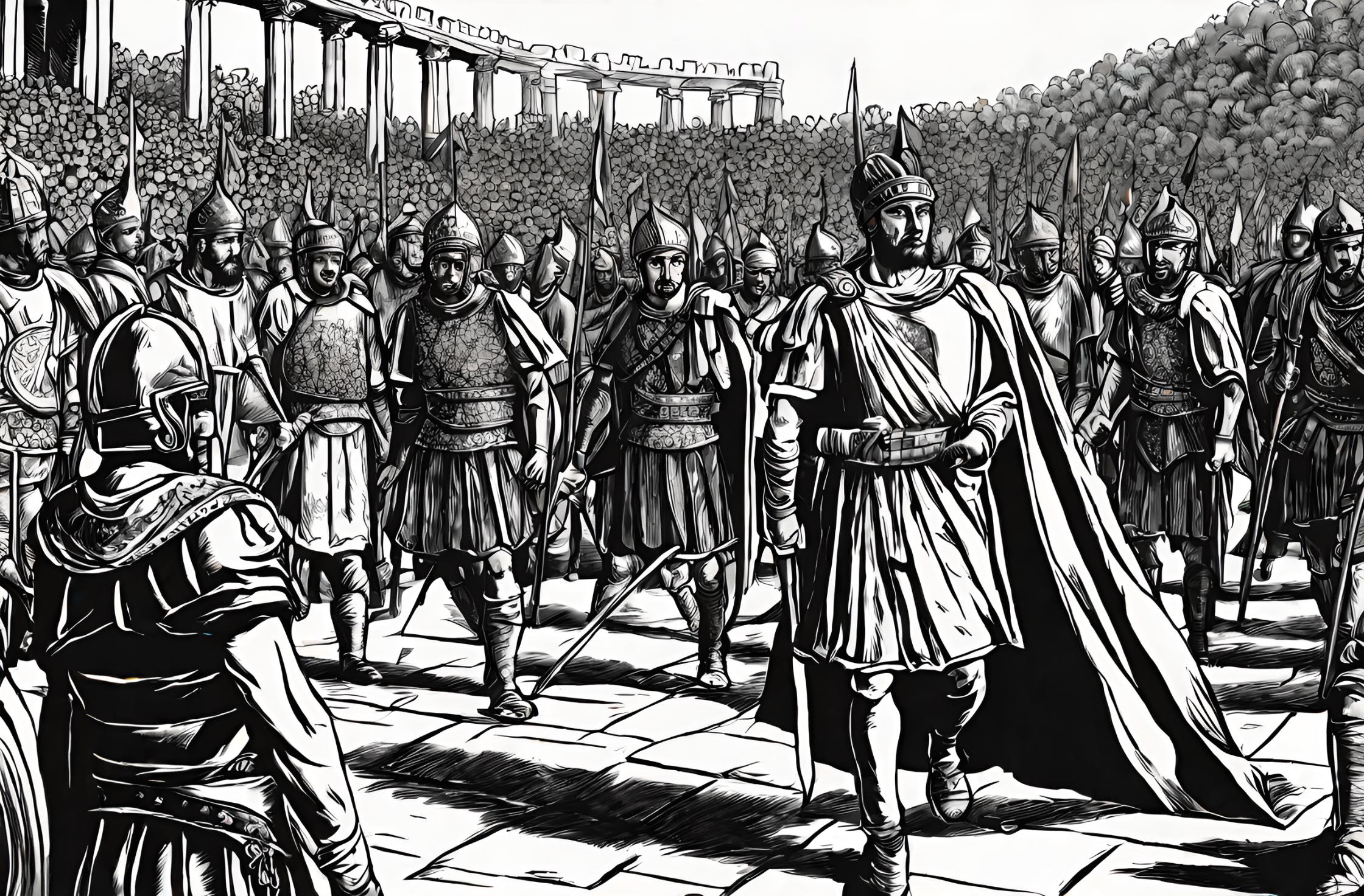Flashback to June 30
World History

0350
Roman usurper Nepotianus, of the Constantinian dynasty, proclaims himself Roman Emperor
Read moreOn June 3, 350, a significant event took place in ancient Rome. Nepotianus, a Roman usurper of the Constantinian dynasty, proclaimed himself as the Roman Emperor. Accompanied by a group of gladiators, Nepotianus entered Rome, making a bold and unprecedented move to seize power. This event marked a turbulent period in Roman history and had a lasting impact on the empire.
The Constantinian dynasty, which ruled the Roman Empire from 306 to 363, was already facing challenges and internal power struggles. The year 350 was particularly chaotic, with multiple contenders vying for the imperial throne. Nepotianus, a nephew of Constantine I, who was the first emperor of the Constantinian dynasty, saw an opportunity to take advantage of the unstable political climate.
Proclaiming himself as the Roman Emperor, Nepotianus gathered a group of gladiators to march with him into Rome. Gladiators were skilled fighters, often slaves or prisoners, who entertained the masses with violent combat in public spectacles. By aligning himself with these fearsome warriors, Nepotianus was sending a clear message of strength and power.
Nepotianus’ proclamation and subsequent entry into Rome were not without opposition. The reigning emperor at the time, Vetranio, saw Nepotianus as a threat to his own rule and attempted to suppress the uprising. However, Vetranio’s efforts were unsuccessful, and he was forced to abdicate within a few months, leaving Nepotianus as the de facto ruler of Rome.
Nepotianus’ reign as the Roman Emperor was short-lived, lasting only 28 days. Despite his initial success in seizing power, he faced challenges from both internal and external forces. His rule lacked the legitimacy and support needed to solidify his position as the rightful emperor.
The usurper’s downfall came swiftly when an army loyal to the legitimate emperor, Constantius II, confronted Nepotianus’ forces outside of Rome. The battle ended with Nepotianus’ defeat, and he was subsequently killed. This marked the end of his short-lived reign and his ambitions to establish himself as the Roman Emperor.
The event surrounding Nepotianus’ proclamation and entry into Rome had long-lasting consequences for the Roman Empire. It exemplified the instability and political turmoil that plagued the empire during this period. The constant power struggles and rivalries within the ruling dynasty weakened the central authority and contributed to the eventual decline of the Roman Empire.
Additionally, the use of gladiators as a symbol of power and support highlighted the growing role of entertainment and spectacle in Roman society. Gladiatorial games had already become popular forms of entertainment, but their association with a political uprising further emphasized their significance and impact on the masses.
the event of Nepotianus, the Roman usurper of the Constantinian dynasty, proclaiming himself as the Roman Emperor and entering Rome with a group of gladiators on June 3, 350, was a pivotal moment in Roman history. It demonstrated the political instability and power struggles within the ruling dynasty, while also highlighting the growing importance of entertainment and spectacle in Roman society. Ultimately, Nepotianus’ reign was short-lived, but his actions left a lasting impact on the empire.
We strive for accuracy. If you see something that doesn't look right, click here to contact us!
Sponsored Content

In Richardton, North Dakota,…
On June 30, 1918,…

Charles Blondin is first…
On June 30, 1859,…

Guatemala revolts for agarian…
Discover the historical event…

Roman Catholic Archbishop Marcel…
On 6/30/1988, Roman Catholic…

A Jeep Cherokee drives…
On June 30, 2007,…

A calendar blue moon…
On 6/30/2007, a rare…

